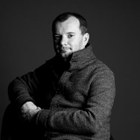International Board
The International Board is formed by scholars and experts that have been studying for several years the phenomena linked to the fashion system, consumer goods and lifestyles with an innovative interdisciplinary method.

Djurdja Bartlett ♱
University of the Arts London, United Kingdom
Reader in Histories and Cultures of Fashion at the London College of Fashion, University of the Arts London. Djurdja Bartlett has widely published and lectured on the theme of fashion during socialism and post-socialism. Bartlett was author of FashionEast: The Spectre that Haunted Socialism (Cambridge, Mass.: MIT Press, 2010) and editor of the volume on East Europe, Russia and the Caucasus in the Berg Encyclopedia of World Dress and Fashion (2010).
Funded by an Arts and Humanities Research Council Fellowship grant, Bartlett’s recent research project took her to seven countries - Austria, Czech Republic, France, Germany, Hungary, Poland and Russia – with aim to explore previously unrecorded, dress-mediated discourse between East Central European and Russian fashion, and its western counterpart throughout the 20th century to the present day. Forthcoming with Bloomsbury, the monograph European Fashion Geographies: Style, Society and Politics contains the main outcomes of this project.
Bartlett was also Coordinator of the Fashion Media and Imagery Research Hub at the London College of Fashion, in which capacity she co-organized a conference – Fashion Media: Yesterday Today Tomorrow (October 2010), published as an edited book, Fashion Media: Past and Present, Bartlett, D., Cole, S. and Rocamora, A. (eds.), Bloomsbury Academic, 2013.

Vittoria Caratozzolo
Università degli Studi di Roma La Sapienza, Italy
She published essays on italian fashion and her themes of research are on fashion representations, exoticisms and cultural globalization. Recently she published: Fashion is Spinach di Elizabeth Hawes. Manifesto di indipendenza sartoriale, in Letterature d’America, n.154, 2015; «Irene Brin» e «Piccolo Dizionario dell’Alta Moda Italiana», in BELLISSIMA. L’Italia dell’Alta Moda 1945-1968, Electa, Milano 2014; «Reorienting Fashion: Italy’s Wayfinding after World War II», in Stanfill, S., (a cura di), The Glamour of Italian Fashion 1945-2014, Victoria and Albert Publishing, London 2014.

Frederic Godart
INSEAD, Institut européen d'administration des affaires, France
He is an Assistant Professor of Organisational Behaviour at INSEAD, in Fontainebleau, France.
Frédéric received his PhD in Sociology from Columbia University in the City of New York. He also holds an MPhil in Social and Political Sciences from the University of Cambridge (Trinity College) in the United Kingdom, an MSc in Management from Sciences Po Paris, and is a former fellow of the ENS in France. He has recently been accredited to supervise research in management at Dauphine University in Paris.
His research focuses on the dynamics of creative industries (e.g., design, modeling, watchmaking, footwear).
He has published his research in a wide range of leading academic peer reviewed journals such as the Academy of Management Journal, Organization Science, Organization Studies, the Annual Review of Sociology, and Social Forces, in practitioner-oriented journals (notably Harvard Business Review), and in several edited books. Frédéric wrote a book on the structure and culture of the fashion industry, Sociologie de la mode (A Sociology of Fashion), which has been translated into Portuguese (Brazil) and Spanish (Argentina). An extended English translation (at Palgrave-MacMillan) is available with the title Unveiling Fashion. He also wrote a book on the intellectual history of fashion, Penser la Mode (Thinking about Fashion). His work and expertise has been extensively featured in several international media such as The New York Times, El País, The Financial Times or Women's Wear Daily, and in French national media such as Le Monde, Les Échos, or Le Figaro.
Prior to completing his PhD, Frédéric worked for three year with McKinsey & Company in Belgium. There, he developed his practical business knowledge in several functional areas, in particular competitive intelligence and social network analysis. He was also involved in multiple strategic studies for a wide range of clients across industrial sectors.

Yuniya Kawamura
Fashion Institute of Technology, New York, United States
Yuniya Kawamura is Professor of Sociology at the Fashion Institute of Technology, New York, USA.
Her published books and articles include:
- [2020] "Chapter 7: Material Culture, Clothing and Consumer Practices", in A Cultural History of Beauty, Volume 6: The Modern Age (1900-Present), edited by Paul Deslandes, London, UK: Bloomsbury. (in progress)
- [2019] Doing Research in Fashion and Dress: An Introduction to Qualitative Methods, 2nd Edition (two additional chapters), London, UK: Bloomsbury. (in progress)
- [2018] Fashion-ology: An Introduction to Fashion Studies, 2nd Edition (two additional chapters), London, UK: Bloomsbury.
- [2017] “Japanese Youth Subcultures as an Alternative Fashion System and a New Business Model” in Japanese Management in Evolution: New Directions, Breaks, and Emerging Practices, edited by Tsutomu Nakano, London, UK: Routledge.
- [2016] Sneakers: Fashion, Gender, and Subculture, London, UK: Bloomsbury. [currently being translated in French]
- [2012] Fashioning Japanese Subcultures, London, UK: Berg/Bloomsbury.
- [2011] Doing Research in Fashion and Dress: an Introduction to Qualitative Methods, London, UK: Berg.
- [2006] "Placing Tokyo on the Fashion Map: From Catwalk to Streetstyle" in Fashion's World Cities edited by Christopher Breward and David Gilbert, Oxford, UK: Berg.
- [2005] Fashion-ology: An Introduction to Fashion Studies, London, UK: Berg. [translated inItalian (2006), Swedish(2007), Russian (2009), Chinese (2009), andTurkish (2016)]
- [2004] The Japanese Revolution in Paris Fashion, London, UK: Berg. [translated in Chinese (2018)]
She sits in the Editorial Board of various journals and editorial series:
- “Fashion, Dress, and Visual Cultures,”a book series, launched by Adam Geczy of University of Sydney, Australia, and Vicki Karaminas of University of Massey, New Zealand, London, UK: Anthem Press.
- “Culture della moda”, a book series, edited by Paola Maddaluno, Professor of Textile Design at Accademia di Belle Art di Brera (School of Fine Art in Brera), and published by Meltemi Editorie, Milan, Italy.
- ZoneModa Journal (Italian-English bilingual journal), edited by Simona Segre Reinach and Daniela Calanca, Bologna, Italy: AlmaDLJournals.
- The International Journal of Fashion Studies, edited by Emanuela Mora, Agnès Rocamora and Paolo Volonté, London, UK: Intellect.
- Fashion Practice: The Journal of Design, Creative Process and the Fashion Industry, edited by Sandy Black and Marilyn DeLong, London, UK: Taylor and Francis.
- Fashion Theory: The Journal of Dress, Body & Culture, edited by Valerie Steele, London, UK: Taylor and Francis.

Nathalie Khan
University of the Arts London, United Kingdom | Fellow 2018
She is Associate lecture in Fashion History and Cultural Studies at Central Saint Martins and London College of Fashion, University of the Arts London.
Nathalie Khan’s research is concerned with the history and theory of the fashion image, with a focus on digital media, fashion photography and the recent representation of catwalk shows through live streams and multi media platforms. She has written about fashion film and promotion and the changing nature of the symbolic production of fashion within the digital frame.
Khan has also worked with visual artists such as Pierre Debusschere and Ruth Hogben to explore the relationship between image-maker and fashion as material object. Khan is currently developing a reader on fashion photography for Bloomsbury.
A further research interest is the changing role of fashion, social history and artistic practice within a postmodern context, where Khan’s focus is on female artists who have used performance or video to respond critically to the rhetoric of consumer culture and/or gender representation.

Wessie Ling
Northumbria University, United Kingdom
She is Reader in Fashion Practice and lectures in Contemporary Design Influences. Her research areas of interest are cultural production in fashion, fashion theories, global fashion history and East Asian fashion.
A trained cultural historian and artist, Ling uses academic writing and visual art practice to address her work. The discourse of cultural identities in the production of fashion and cultural property of fashion are common themes in her work; in particular, the construction, expression and creation of an identity when producing fashion, its relation with the transnational locality and the tension within and outside of the fashion system in which it is produced. Fashion as an attitude, an idea or a resource, its pull-push force, the juxtaposition of its use and being used by it are threads in both her written and art- work. Author of Fusionable Cheongsam (2007), she has written widely on the socio-cultural revolution of the Chinese dress through which dissected the material culture in China. Such a geographic focus has led her to develop study in the 20thC Chinese fashion in which inter-East Asian (Chinese, Japanese, Korean) cultural dynamics in the making of fashion is examined in a recent AHRC awarded project on Translating and Writing Modern Design Histories for the Global World (2012-4). Subsequently in progress is an edited volume on Multiple Chinas which studies contemporary façade of China through post-1980s Chinese fashion taking into account not only the fast-developing country itself but also its diaspora and cultural interaction with Europe. In her visual art practice, she uses text and installation to create work that addresses the immaterial and soft power of fashion. Works were exhibited in Danson House (2013, UK: Bexleyheath), Brunei Gallery (2012, London: SOAS), Saltram House (2012, Plymouth: National Trust), Victoria & Albert Museum (2011, London) among others. She is currently developing a series of textual compositions from fragments of fashion advertising slogans into prints, audio, performance and text installations.
Dr Ling sits on the Editorial Board of Catwalk: The Journal of Fashion, Beauty and Style, also is the Organising Committee member of Fashion in Fiction (2014), a bi-annual international touring conference. She is the Vice Chair of the Board of Trustees for the Centre for Contemporary Chinese Art (CFCCA, Manchester).
At Northumbria, she leads CloTHINK, a design department-based faculty-wide research group, on fashion, textile, body, visual and material cultures, for which regular semester meetings and a guest speaker programme are held.

Luca Marchetti
HEAD, Haute école d'art et de design, Switzerland
Semiotician specialised on fashion and design, he is professor at the University of Bologna, professor at the HEAD – Geneva and senior lecturer at the IFM Institut Francais de la Mode (Paris). Based in Paris, he also works internationally as exhibition curator and consultant for brands and socio-cultural research institues. Beside his collaborations with magazines such as Vogue or Domus, he regularly contributes to publications on fashion and design.

Peter McNeil
University of Technology Sidney, Australia
Peter McNeil FAHA is a major figure in art, fashion and design history with an extensive record of publishing and public speaking. His global research has been recognized by the Australian Academy of the Humanities (2013) and the Academy of Finland: Distinguished Professor award (2014). He has been nominated to the International Committee of the History of Art, the ‘Olympics’ of Art History.
Described as the world’s greatest expert on 18th-century men’s dress, his reach extends to design culture generally from 1700 to the present day, combining a sophisticated theoretical approach alongside a very pragmatic, empirical understanding of objects themselves. His work has been praised in The New York Times, The Guardian, and The Observer. He is popular speaker in Australia and overseas, having delivered the AGNSW Learning Curve lectures as well as being an ADFAS Australian lecturer. He is regularly sought after for interview, including ABC/Margaret Throsby.
At UTS, Peter lectures in inter-disciplinary design. His focus is PhD supervision: many of his candidates have won post-doctoral prizes and awards. Topics range from rethinking maternity dress to the politics of work in the digital age.
He Is a regular collaborator with cultural organisations: National Gallery of Australia, National Portrait Gallery, National Museum (Australia), AGNSW, National Library of Australia and museums in the USA, UK and Sweden. Partnerships include the Sydney Jewish Museum and Reigning Men at Los Angeles County Museum of Art.

Giovanni Matteucci
Università di Bologna, Italy | Fellow
Full Professor at the University of Bologna since 2014, his main research field is German and Anglo-American contemporary aesthetics. His studies concern the relationship between perception praxis, form processes and expression practices according to an anthropological conception of the aesthetic. Currently his research regards phenomena of widespread aestheticization and the determination of the aesthetic as a relational field.
Among his main publications are the following volumes: Dilthey: Das Ästhetische als Relation (Würzburg 2004), Filosofia ed estetica del senso (Pisa 2005), Il sapere estetico come prassi antropologica (Pisa 2010), L'artificio estetico (Milano 2012), Il sensibile rimosso (Milano 2015). He edited the Italian translation of classical works of contemporary aesthetics (Dilthey, Estetica e poetica, Milano (1992) 2005; Cassirer, Tre studi sulla forma formans, Bologna 2003; Adorno, Ästhetische Theorie, Torino 2009, with Fabrizio Desideri; Dewey, Art as Experience, Palermo 2007; Langer, Problems of Art, Palermo 2013; Wollheim, Art and its Objects, Milano 2013) and collective books about various issues (analytic aesthetics, anthropology of images, nature of the emotions, everyday aesthetics, pragmatism).

Maroje Mrduljaš
Sveučilišta u Zagrebu - University of Zagreb, Croatia
Maroje Mrduljaš is architect, critic and curator. His authored and edited books on architecture and design: Lifting the Curtain, Central Europan Architectural Networks, (Éditions Fourre-Tout, Liege – forthcoming), Transcending Oppositions / Tadao Ando’s Recent Works (Oris, Zareb), Modernism-in-Between (Jovis, Berlin), Unfinished Modernisations – Between Utopia and Pragmatism (UHA, Zagreb), Testing reality – Contemporary Croatian Architecture (Arhitekst, Zagreb), Design and independent culture (Kurziv and upi-2m books, Zagreb) and others. He contributed to several collections including SOS Brutalism - A Global Survey (Park Books, DAM Frankfurt), Vjenceslav Richter (Museum of Contemporary Art, Zagreb) Bauhaus – networking ideas and practice (Museum of Contemporary Art, Zagreb), Holidays After the Fall (Jovis, Berlin), Team 10 East (Warsaw Museum of Contemporary Art).
Since 2005 he severs as editor, and since 2017 as editor-in-chief of Oris magazine for architecture and culture based in Zagreb. Maroje’s writings have appeared in leading international journals including A+U, Archithese, Bauwelt, db and Domus.
In 2009 Maroje established research network Unfinished modernisations dealing with post-WWII modern architecture in region in former Yugoslavia.
He curated and contributed to the exhibitions: 1960s in Croatia (Museum of Applied Arts, Zagreb), 3LHD-Interactions (Museum of Contemporary Art, Zagreb), Lifting the Curtain – Central European Architectural Networks (Venice Architecture Biennale 2014), Unfinished Modernisations – Between Utopia and Pragmatism (Umetnostna galerija Maribor), Architecture as Landscape (London Festival of Architecture 2010), Continuity of Modernity (Architektur im Ringturm Wien), Balkanology (Swiss Architecture Museum Basel, Architekturzentrum Wien) and others. He is member of curatorial team of the exhibition Concrete Utopia - Architecture of Socialist Yugoslavia, MoMA New York.
Maroje delivered lectures at international institutions, universities and events including RIBA London, COAC Barcelona, UIA Congress Tokyo 2011, Tadao Ando Foundation Osaka, AZ W Vienna, ETSA Pamplona, Universität Liechtenstein, GtA - ETH Zurich, EAHN Bruxelles 2012 and others.
Maroje co-authored two seasons of documentary films Concrete Slumbers about modernist architecture in ex-Yugoslav region commissioned by Croatian national television.
In partnership with various architects, Maroje participated in numerous architectural competitions. For the project of Islamic Cultural Centre in Rijeka he won 2nd award of Zagreb Salon 2003. curated by Stefano Boeri. He authored several conservation studies for listed modernist buildings in Croatia.
He is independent expert of EU Mies van der Rohe Prize for Architecture and member of Committee of Experts of European Prize for Urban Public Space. He received four Neven Šegvić prizes for architectural theory awarded by the Croatian Architects’ Association (2016, 2015, 2012, 2007).

Eugenia Paulicelli
City University of New York, United States
She is Professor of Italian and Comparative Literature, a member of the faculty in the Certificate Program in Women's Studies and of the Master in Liberal Studies (MALS) at the Graduate Center. She co-founded and directs the PhD interdisciplinary concentration and the track in Fashion in the Master of Arts in Liberal Studies, both at the Graduate Center. She holds a Laurea in Foreign Languages and Literatures, with a specialization in English and Literary Semiotics, awarded by the University of Bari, Italy; and a PhD in Italian, with a minor in French, awarded by the University of Wisconsin at Madison. The major areas of her research are critical theory, Italian literature and cinema, fashion and modernity, gloabalization and indentity, gender and women's histories. In particular, she has studied the impact visual culture and new technologies have had on the word/image relationship and on perception and cognition of the world, on language, writing and memory. Gender and how it has transformed knowledge of the past and understanding of reality, whether literary writing or systems of signification such as fashion, is central to her research. These interests have taken to form of scholarly publications in various areas: the debate among the disciplines in Renaissance Italy; writing fashion and issues of politics, style and behavior; dress and identity in social, political and geographical spaces in the past and in the present; the study of Italian writers who were fascinated with or drew inspiration from art and visual culture; the cultural politics of fascism and the use it made of fashion, style and the media; fashion and its implications with processes of modernization, architecture and urban tansformations, as well as studies focusing on literature, history and the craft of writing. She has curated and co-curated exhibitions "The Fabric of Cultures. Fashion, Identity, Globalization" held at the Godwin-Ternbach Museum at Queens College in the spring of 2006 and at the Museum of Craft and Folk Art in San Francisco in spring 2008; and "Fashion + Film: The 1960s Revisited" held at the James Gallery at the CUNY Graduate Center in spring 2010. She has lectured in US, Europe and Asia; has been Guest Professor at The University of Stockholm in the PhD program of "Fashion Studies;" and awarded the Benjamin Meaker Visiting Professorship at the University of Bristol (UK) in spring 2013.

Nick Rees-Roberts
Université de la Sorbonne Nouvelle, France
Nick Rees-Roberts is Professor of Media and Cultural Studies at the Sorbonne Nouvelle University, Paris, France, where he is the director of the Masters programme in Fashion Design and Creative Industries in the Faculty of Arts and Media. He holds a BA (Hons) in Modern Languages from the University of Oxford and a PhD in Media and Cultural Studies from the University of Sussex (UK). He was formerly Lecturer and then Senior Lecturer at the University of Bristol (UK) from 2007 to 2016. Professor Rees-Roberts’ research focuses on contemporary media-culture in the intersecting fields of fashion studies, film studies, and gender and sexuality studies. He is the author of French Queer Cinema (2008/2014), co-author of Homo exoticus: race, classe et critique queer (2010), and co-editor of Alain Delon: Style, Stardom and Masculinity (2015). His latest book is Fashion Film: Art and Advertising in the Digital Age, published in 2018 by Bloomsbury Visual Arts, and he is now working on a book about contemporary fashion design and the luxury economy provisionally titled Postmillennial Fashion: Design and Communication in the Corporate Age.

Giorgio Riello
University of Warwick, United Kingdom
He is Professor of Global History and Culture and Director of the Institute of Advanced Study and the Global History and Culture Centre at the University of Warwick. He is the author of A Foot in the Past (OUP 2006) and Cotton: The Fabric that Made the Modern World (CUP 2013; winner of the World History Association Bentley Prize 2014) and has published extensively on the history of material culture, fashion, design, and trade and consumption in early modern Europe and Asia. He is the co-editor, among the many, of Global Design History (Routledge 2011), Writing Material Culture History (Bloomsbury 2015) and The Global Lives of Things (Routledge 2016). Between 2013 and 2015 he was the coordinator of the Leverhulme-funded ‘The Luxury Network’. His most recent book is entitled Luxury: A Rich History (OUP 2016) which he co-authored with Peter McNeil. In 2016 he was awarded the Iris Foundation Award for his contribution to the field of Decorative Arts and Material Culture.


